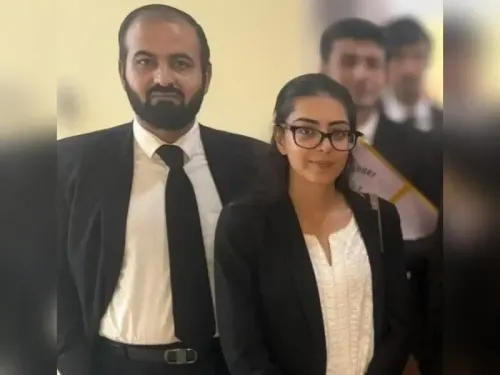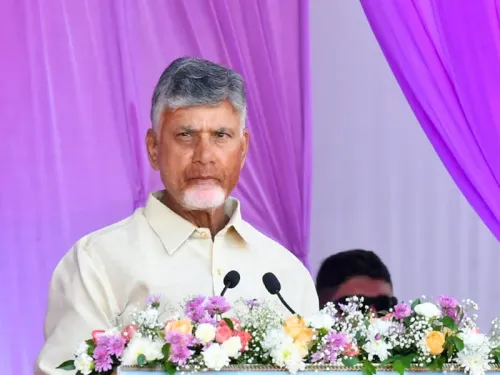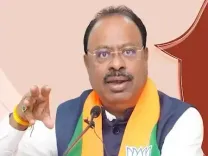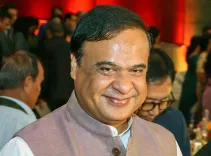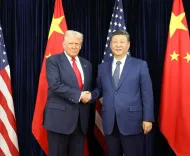Why is the Centre distancing itself from the exclusion of women journalists at the Taliban press conference in Delhi?
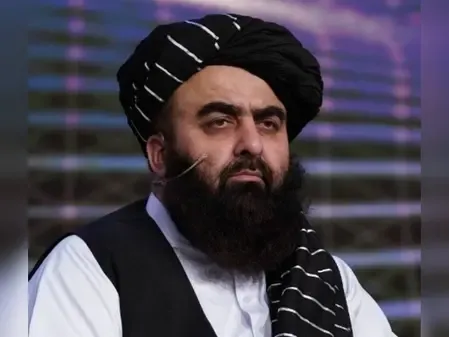
Synopsis
Key Takeaways
- Exclusion of women journalists at a crucial press conference raised significant concerns.
- The Indian government distanced itself from the organization of the event.
- The Afghan Embassy operates independently of Indian authorities.
- Political leaders have voiced their discontent regarding the situation.
- Strict limitations on women by the Taliban continue to be a pressing issue.
New Delhi, Oct 11 (NationPress) The Indian government on Saturday asserted that it had “no involvement” in the press conference held by Afghanistan’s Foreign Minister Amir Khan Muttaqi in New Delhi, which faced backlash due to the exclusion of female journalists.
The Ministry of External Affairs (MEA) specified that invitations for this press gathering were distributed by Afghanistan’s Consul General in Mumbai to a limited number of journalists in Delhi for the Afghan minister’s visit. The Afghan Embassy operates independently of Indian governmental authority, as reported by NDTV citing the MEA.
This press conference occurred on Friday at the Afghan Embassy, where no female journalists were present. Reports suggested that certain female reporters were even denied entry. Following the event, many journalists expressed their discontent on social media, pointing out that all women in attendance had followed the required dress code.
Numerous Opposition leaders have questioned the Centre’s position regarding the exclusion of women from the event.
Congress leader Priyanka Gandhi Vadra prompted Prime Minister Narendra Modi to elucidate his stance, condemning the disrespect faced by some of India’s most competent women in a nation that regards women as its backbone and pride.
Simultaneously, the barring of women journalists led to considerable backlash on social platforms.
Muttaqi arrived in the capital on Thursday and engaged in discussions with EAM Jaishankar, covering subjects such as India’s support for Afghanistan's development, bilateral trade, territorial integrity, and capacity-building, among others.
However, the subsequent press conference by Muttaqi at 3:30 p.m. at the Afghan Embassy was not accessible to a broader media audience, further excluding female journalists.
Despite being a significant diplomatic engagement, particularly given New Delhi's cautious approach towards the Taliban, wherein EAM Jaishankar announced India's upgrade of the Technical Mission in Kabul to Embassy status, many journalists were neither informed nor granted access.
The Afghan Embassy in Delhi continues to be managed by Charge d’Affaires Mohammad Ibrahim Khil from the previous Ashraf Ghani administration, while consulates in Mumbai and Hyderabad are already under Taliban governance.
Attending journalists, who wished to remain anonymous, informed IANS that they only learned about this press conference on the morning of the event.
Moreover, concerns have emerged about the limited media access provided, as only 15-16 media representatives attended this conference.
Reportedly, Taliban official Ikramuddin Kamil, who leads Afghanistan’s Mumbai Consulate since last year, reached out personally to selected journalists to extend the informal invitation.
Furthermore, female journalists have voiced their frustration regarding the absence of invites for female reporters.
The selective invitation process, along with the selective journalist engagement by Muttaqi’s media team, has ignited criticism within journalism circles, arguing that limiting coverage of such a crucial development undermines transparency and curtails broader media scrutiny of India’s evolving relationship with the Taliban leadership.
The Taliban government in Afghanistan is recognized for its strict limitations imposed on women, particularly preventing them from working.
Recently, it has also prohibited books authored by women in Afghan universities and eliminated 18 courses, including Gender and Development, Women's Sociology, Human Rights, Afghan Constitutional Law, and Globalisation and Development.


